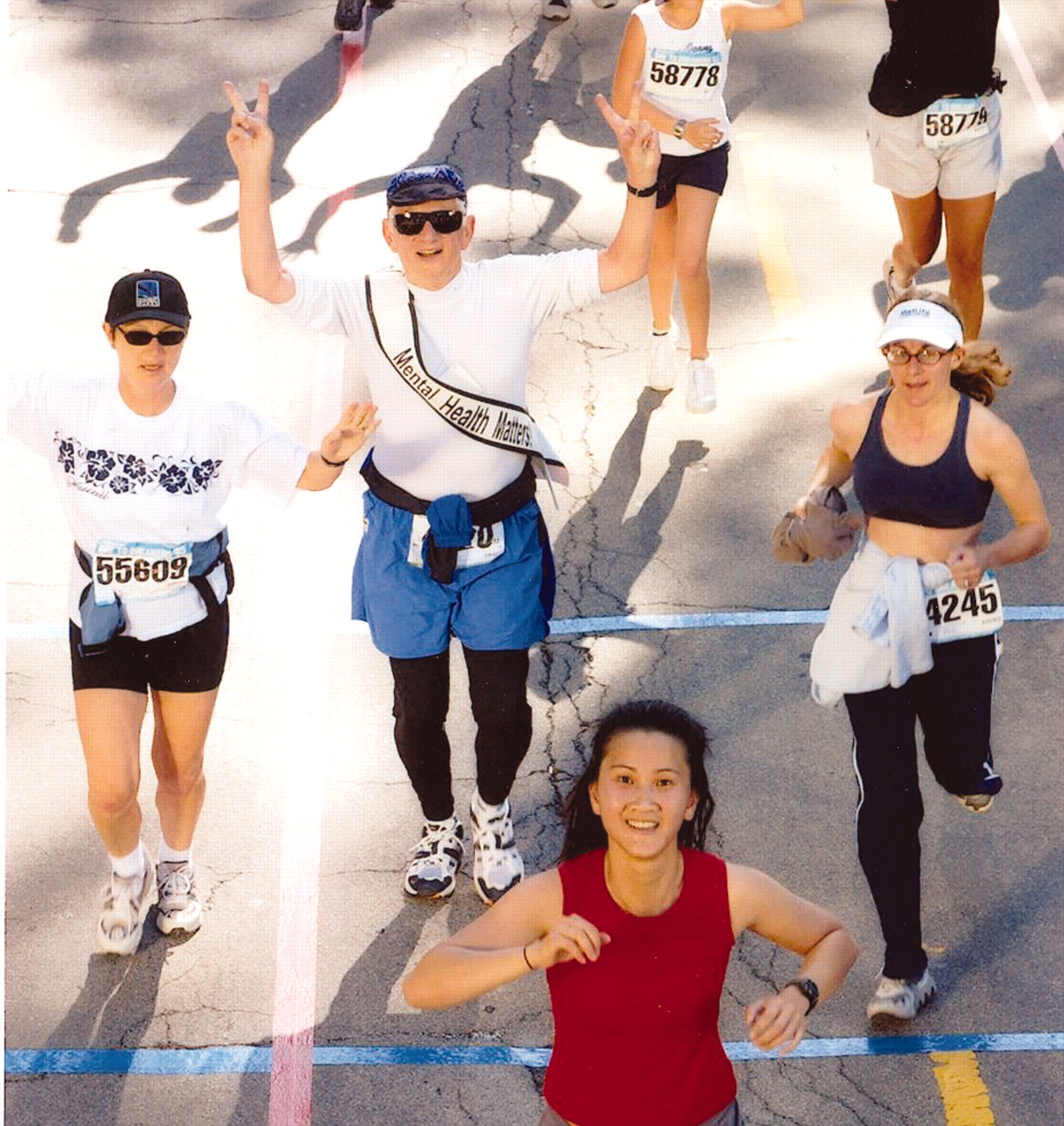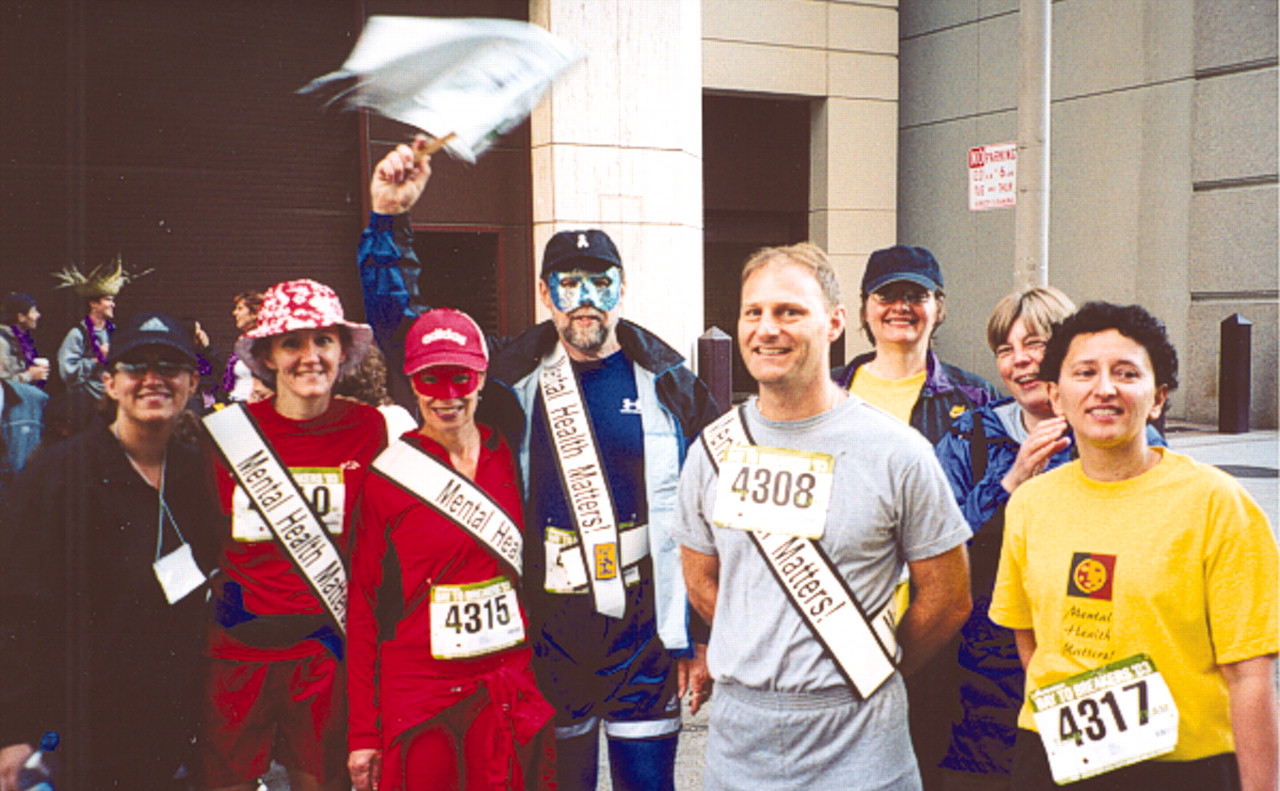APA members, their families, and affiliated organizations interested in mental health took to the streets to “walk the talk”—and run the talk—on behalf of treatment for mental illness and substance abuse at this year’s annual meeting in San Francisco.
A 29-member team of psychiatrists, psychologists, and family members bearing the team name “Mental Health Matters!” participated in the famous Bay to Breakers run, which coincided with this year’s annual meeting in San Francisco.
Seattle psychiatrist Ron Sterling, M.D., who helped organize the team, said it included members from California, Colorado, Georgia, Massachusetts, Maine, Minnesota, North Carolina, South Carolina, Texas, and Washington.
Paul Zarkowski, M.D., a psychiatrist from Seattle, was the first of the Mental Health Matters! Team to finish, with a time of 1:04:03. David Benedek, M.D., a psychiatrist from Clarksville, Md., finished second at 1:07:02.
Sterling told Psychiatric News that participation in runs and walks like the Bay to Breakers run is a vital way that psychiatrists can enhance their relationship with a community and demonstrate solidarity with others involved in advocacy for the mentally ill.
“Such runs and walks allow consumers, the general public, and all sorts of mental health professionals the opportunity to have face-to-face contact in a nonthreatening and fun environment,” he said. “In a very real way, these types of events provide a potent form of desensitization for traditionally stigmatized issues. This is antistigma at its best. Runs like Bay to Breakers are great opportunities for psychiatrists and their friends to influence the community’s comfort zone about mental health care.”
Sterling cites a study by the Chicago Consortium for Stigma Research testing three ways for combating mental illness stigma: protest, education, and contact. Results showed that face-to-face contact between individuals with mental illness and the test subjects produced the best anti-stigma results and the most understanding.
“One could extrapolate such results to reliably conclude that the best way to bring about more understanding and less stigma related to the profession of psychiatry and psychiatrists is face-to-face contact,” Sterling said. “That principle should almost be intuitive at this point in history. As psychiatrists, we have more of an opportunity than ever to assist in the destigmatization of mental illness and mental health care. Organizations such as NAMI and NMHA have paved the way for us. We can join them in their efforts. We don’t even have to reinvent the wheel.”
Sterling says the team is already planning future runs. Next year’s annual meeting in New York City will coincide with a women’s health run—the Revlon Run/Walk for Women—which may provide an opportunity for the “Mental Health Matters!” team, Sterling said.
He urges APA members and others to visit the Web site at MentalHealthRun.org for information on many types of mental health and substance abuse runs and walks.
“I invite all my colleagues and their friends to join such efforts everywhere they can,” he said. “These are great opportunities for psychiatrists and their friends to influence the community’s comfort zone about mental health care.” ▪


